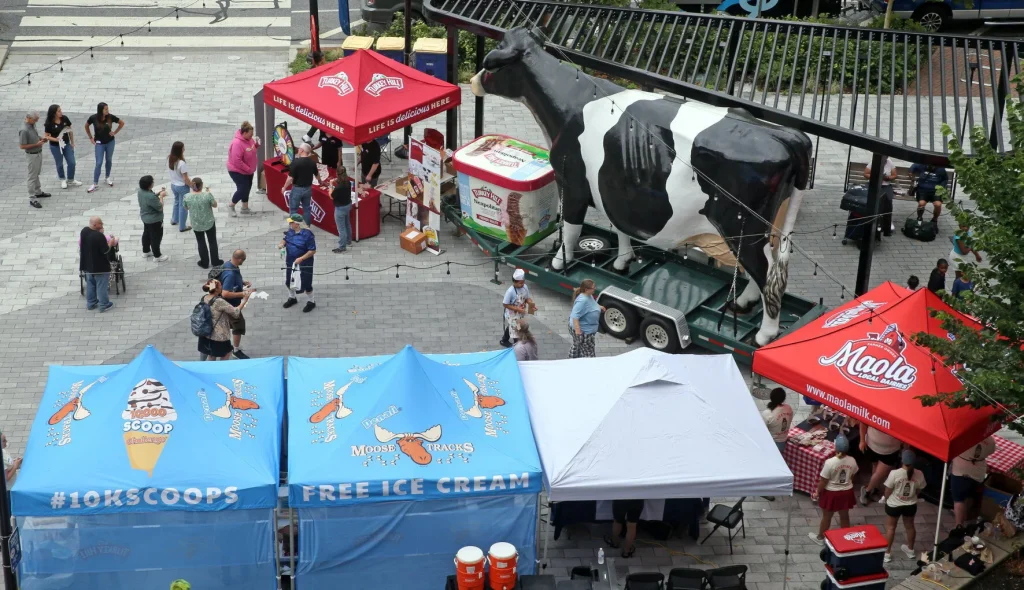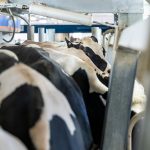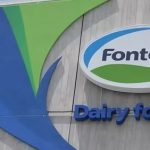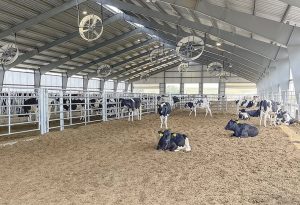
How Dairy Desserts and Community Outreach Drive On-Farm Sustainability Efforts
The collective love for ice cream is proving to be a powerful engine for dairy farm conservation. An event hosted by Denali Brands and Turkey Hill in Lancaster, Pennsylvania, known as the “10,000 Scoop Challenge,” raised funds for the Alliance for the Chesapeake Bay. This organization directly supports on-farm conservation efforts, demonstrating a unique partnership between dairy industry players, a national nonprofit, and consumers. The event, which has a history of supporting various causes, highlights how innovative outreach can create a direct link between community engagement and environmental sustainability within agribusiness.
For this year’s event, both Denali Brands and Turkey Hill donated $1 for every scoop of free Moose Tracks ice cream served to the public. This campaign successfully raised $20,000, which will be used to help farms implement critical conservation measures. These efforts include funding for manure storage facilities, creating customized sustainability plans, and planting riparian buffers. The initiative showcases a concrete and effective method of channeling corporate and consumer goodwill into tangible benefits for the dairy community and local watersheds.
A prime example of this success is Silo View Farm in Lebanon County. When owner Dale Heagy needed to expand his herd, he faced significant costs for a new manure pit. An $80,000 grant from the Alliance for the Chesapeake Bay, secured with the help of this initiative, covered the additional expenses and allowed the farm to implement a larger containment system. This project not only improves water quality by keeping the local Swatara Creek clean but also creates environmental benefits like providing shade for cows during hot summers, which enhances animal welfare and farm productivity.
The collaborative model behind this fundraiser extends to the broader dairy supply chain. The farm is part of the Maola Local Dairies co-op, which supplies milk to Turkey Hill. This relationship allows the Alliance to work directly with companies that have deep ties to farmers. As Maola’s communications director, Amanda Culp, noted, the benefits of these conservation practices go beyond just the environment; they also result in healthier, happier animals that produce higher-quality milk. This reinforces the idea that sustainability is not just an environmental imperative but a sound dairy economics strategy.
The success of the 10,000 Scoop Challenge is a testament to the potential of corporate-nonprofit partnerships to address key environmental issues within the dairy sector. By leveraging a popular product like ice cream, brands can engage the public and generate significant funds that directly impact dairy farm conservation. The model provides a clear blueprint for how the dairy industry can proactively invest in sustainability and clean water initiatives, creating a positive ripple effect that benefits farmers, the environment, and the broader community.
Source: Lancaster Farming




















